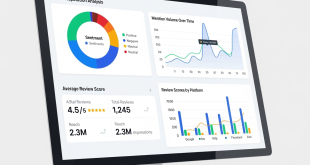Keywords are the cornerstone for any business that wants to rank highly on Google and other search engines. Fact.
Most of us are aware of this – but do we actually act on it?
Are you optimizing your website the way you should?
You are?
…on every page?
With the right keywords, your site’s ranking will improve and traffic will increase – along with your conversion rate.
But the wrong keywords will mean your target audience won’t be able to find your site and your content, products and services will be wasted.
Only the correct keywords will grow your online business, so it’s vital to get it right. Selecting sets of keywords relevant to your business is easy, but choosing the best ones that will be most effective and generate organic traffic and SEO referrals requires some effort. While this can sometimes feel like a bit of a drag, keeping your content keyword optimized isn’t as tricky as all that – and it doesn’t have to be time consuming either. Here are some quick and simple tips to take away the trauma and advance your keywords from minor to major:
1. Brainstorm
Get the ball rolling with a good old brainstorming session. Write down absolutely every word or phrase you can think of that is relevant to your business – even if you think they’re a bit on the silly side – it’s all about limbering up your mind and getting your creative juices flowing! Brainstorming will generate some fantastic ideas and give you an excellent base to start from.
2. Think Like Your Target Audience
Put yourself in their shoes. Use your research and social media marketing to gauge what your target audiences need and want. What related words will they use to find what they are looking for?
3. Be Relevant
If it ain’t TOTALLY relevant to the content on your pages – don’t include it. Too many unrelated keywords will negate your niche and make your website hard to find for the people that matter.
4. Stay On Trend
Make sure you are frequently doing research and checking what keyword searches are current. If your keywords stay static and don’t change according to what’s popular, your search engine rankings will quickly drop.
5. Long-tail it
Although they generate less traffic, long tail keywords (basically keyword phrases that are longer and much more specific, like “join B2B mastermind group”) are extremely targeted and therefore the people they bring to your site know exactly what they want and they are far more likely to commit.
6. Keep an Eye on the Competition
What keywords are your arch-rivals using? Be a little bit cheeky and incorporate their most successful keywords and phrases into your own pages.
7. Use Free Tools
Google provides simple, effective and indispensible keyword research tools like Adwords and Google Trends. Take advantage!
8. Strike a Balance
Between frequency and competition. Ideally choose keywords and phrases with a high search volume and a low level of competition
9. Optimize everything
As well as optimizing with title tags and meta tags, each page on your site should have one to three keyword phrases that are specifically related to the content on that particular page. Use your keywords and phrases throughout your website, in press releases and blog articles and any other content you produce, but make sure they always make sense and don’t interrupt the flow of the text. Don’t overcook it by adding too many either – keep quality content as your main focus.
10. Analyze
Knowledge is power. Analyze every page of your site to find out which keywords are producing the most visitors, and which of those keywords are creating the highest number of conversions. Learn from your results and optimise your keywords accordingly.
James makes small businesses bigger. He’s worked with some of the world’s largest brands and companies to market their products and services online – including Disney, Microsoft, 20th Century Fox, Virgin, Coca Cola, MTV and many others. Find out more and read business growth tips at http://www.JamesTNoble.com .
 Entrepreneur Resources Your source for small business information
Entrepreneur Resources Your source for small business information





3 comments
Pingback: New James T Noble Keyword Guide Published by Small Business Marketing …
Pingback: New James T Noble Keyword Guide Published by Small Business Marketing Coach Dequiana Brooks Jackson | Apple
Pingback: How to Use Keywords with Purchase Intent to Supercharge Your Conversions - Entrepreneur Resources